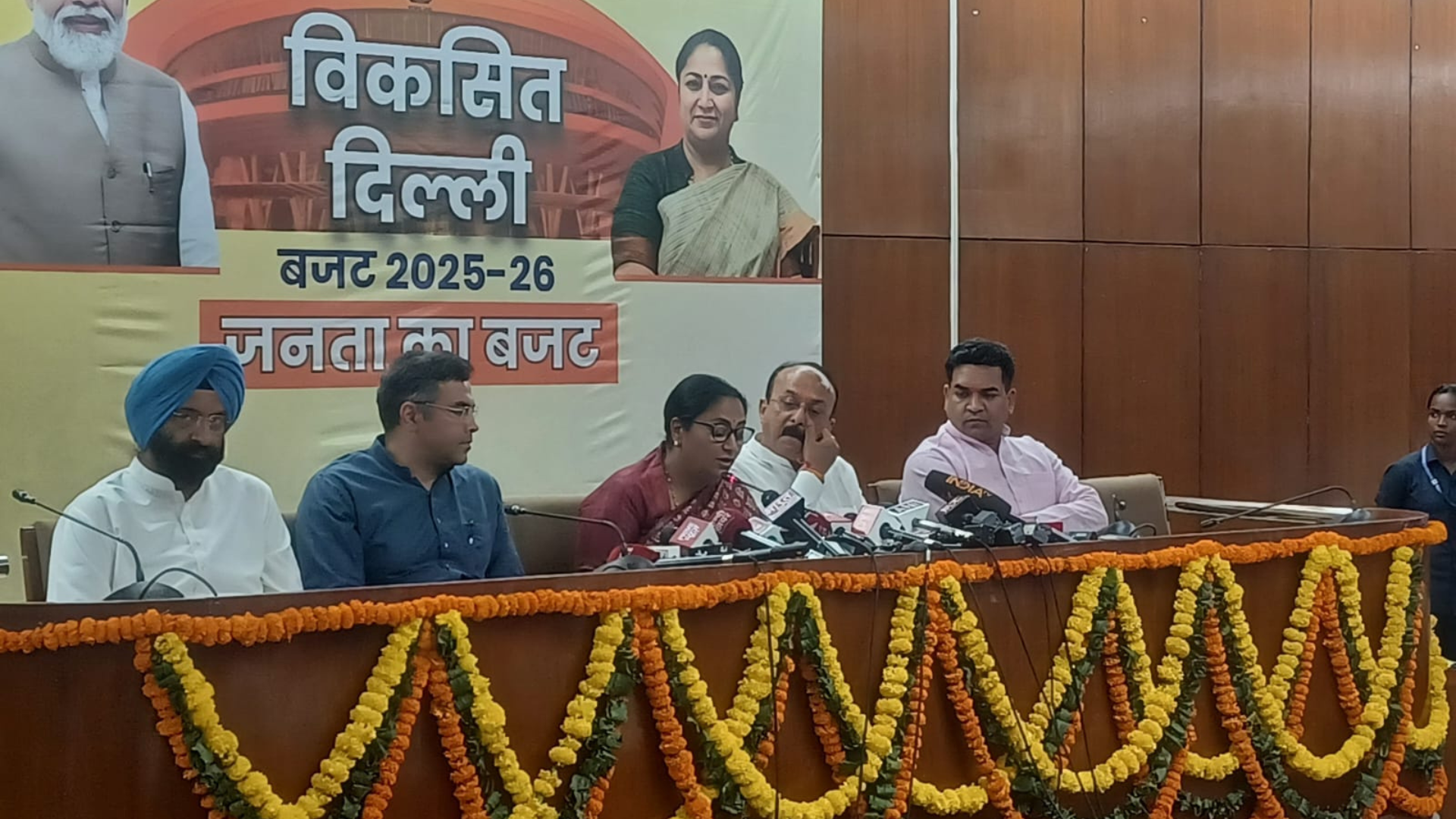Delhi Chief Minister Rekha Gupta unveiled a groundbreaking budget for the financial year 2025-26 on Tuesday, marking the most significant increase among all state budgets in the country. The budget saw an impressive 31.58% rise compared to the previous fiscal year, with a total allocation of ₹1 lakh crore directed toward crucial sectors such as education, transport, and urban development. Highlighting the scale of the increase, CM Gupta stated, “In 2024-25, the budget was ₹76,000 crore, and this year, we have elevated it to ₹1 lakh crore, reflecting a 31.58% rise. This is the most substantial budgetary growth in the country.”
A substantial portion of this allocation has been dedicated to education, which has received ₹19,291 crore—an increase of 17% compared to the previous year’s ₹16,396 crore. The transport sector has also seen a remarkable boost, with its budget surging by 73%. These additional funds will be used to strengthen road networks, expand the metro system, and enhance public transportation services across the city.
Furthermore, the Housing and Urban Development sector has witnessed a 9% increase in its budget. This added investment will support affordable housing initiatives, sanitation improvements, and the advancement of urban infrastructure. Detailing the key allocations, CM Gupta stated, “The education sector’s budget, which was ₹16,396 crore in 2024-25, has been raised to ₹19,291 crore—an increase of 17%. Meanwhile, the transport sector has seen an extraordinary 73% hike, and the allocation for Housing and Urban Development has been raised by 9%.” While the Delhi Budget 2025-26 has elicited mixed political reactions, its historic increase in allocations and emphasis on essential sectors underscores its intent to drive overall progress. With a total outlay of ₹1 lakh crore, this budget is designed to uplift the quality of life for Delhi’s residents by focusing on education, transport, and urban development.
Meanwhile, Delhi Cabinet Minister Ashish Sood praised the budget, calling it a visionary financial plan. Sood stated, “Rooted in Prime Minister Narendra Modi’s vision of ‘Sabka Saath, Sabka Vikas,’ the 2025-26 budget is the first step toward realizing the ‘Viksit Delhi – Sankalp Patra 2025.’ Within just 33 days of governance, Chief Minister Rekha Gupta and our administration have allocated ₹1 lakh crore in government spending—31% more than last year’s budget. A major focus of this budget is the significant increase in capital expenditure, with ₹28,000 crore earmarked for the development of productive assets such as roads, flyovers, bridges, public transportation, electricity infrastructure, schools, and healthcare facilities. This ensures a strong and sustainable foundation for Delhi’s future.”
The budget also gives priority to the youth and upcoming generations in Delhi. Several innovative initiatives in education have been approved, including CM Shri Schools, the Mahamana Pandit Madan Mohan Malaviya Vidya Shakti Mission, Rashtraniti, and Dr. APJ Abdul Kalam Language Labs. To further enhance the education sector, the government has allocated ₹19,291 crore for 2025-26, reflecting an 18% increase over the previous AAP government’s 2024-25 budget.
On the other hand, the opposition strongly criticized the newly formed Delhi government, led by the Bharatiya Janata Party, for its budget proposals. Delhi Congress President Devender Yadav dismissed the BJP’s first budget under Chief Minister Rekha Gupta as deceptive and a betrayal of public expectations. He stated that the people of Delhi had elected the BJP with hopes of relief after enduring 11 years of misgovernance under the AAP government, but the new budget offered nothing substantial. While the CM announced a ₹1 lakh crore budget, Yadav pointed out that ₹9,950 crore would be extracted from taxpayers to fund BJP’s welfare programs, albeit at a reduced ratio. He criticized the CM’s reference to Dr. B.R. Ambedkar, Mahatma Gandhi, and Prime Minister Narendra Modi’s vision of “Sabka Saath, Sabka Vikas,” claiming that, in reality, the budget was based on false promises and empty rhetoric designed to mislead the people of Delhi.
Yadav further criticized the BJP’s 2025-26 budget, highlighting a decline in capital expenditure from 34.3% under Sheila Dikshit’s Congress-led government in 2013-14 to 28% under BJP and 19.85% under AAP, which, he argued, has brought development in Delhi to a standstill. He asserted that despite the rising cost of living, the BJP’s reduced capital expenditure contradicts its claims of prioritizing development.
Additionally, he accused the BJP government of adopting the ineffective strategies of AAP when it comes to cleaning the Yamuna and called for transparency in how public funds were being utilized for this cause. He further raised concerns about an impending water crisis in Delhi, blaming both the AAP and BJP for failing to develop practical solutions to enhance Delhi’s drinking water supply. According to him, both governments relied on hollow promises, such as free water schemes, without taking tangible steps to increase water availability in the city.

